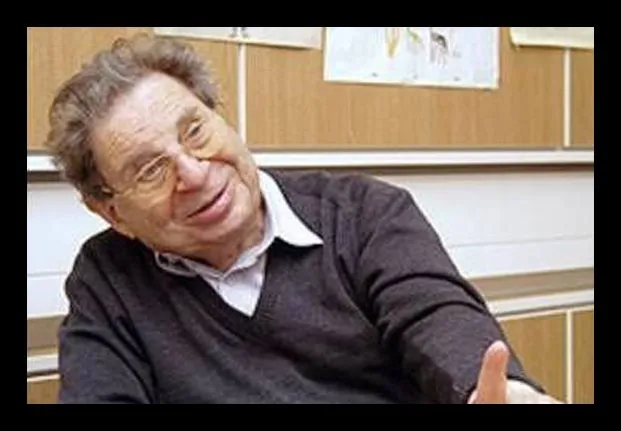Tibor Vámos, the founder of SZTAKI, passed away
20 May 2021
It is with profound sadness that we learned the passing away of Tibor Vámos who certainly considered SZTAKI to be the main work of his life. He passed away on 19 May 2021 at the age of 95.
Tibor Vámos was born in Budapest, on the 1st of June, 1926. He graduated from Madách Gimnázium in 1944, the same year he was taken to forced labor to Fertőrákos. He escaped and got to a military prison.
At age 11, Vámos wanted to be a mathematician-physicist, but he shifted to electric engineering after meeting some – according to his own words – “true great talents”. He graduated from Budapest University of Technology and Economics in 1949.
Vámos worked at the Erőmű Beruházási Vállalat between 1950 and 1954. He was the lead construction engineer of the Inotai Hőermőmű from 1950 to 1952, later joined to Dunai Vasmű in the same position. Between 1954 and 1958, he was an academic fellow researcher at the Research Institute for Electric Engineering. He wrote his dissertation in 1958 on the load control of drum coal-fired boilers.
His interest soon shifted to the just emerging field of computer science. Vámos led the HAS Automation Office between 1958 and 1964. In 1964, Vámos, Ottó Bencsik and Frigyes Csáki founded the HAS Research Institute of Automation, one of the precursors of the modern SZTAKI. He defended his academic doctoral dissertation in the same year, written about the dynamic behavior of power plants and energy systems according to the application of computer methods. Under his leadership, the HAS Research Institute of Automation and HAS Computer Science Center merged into SZTAKI in 1974. Vámos was the director of SZTAKI between 1964 and 1986. During 1986, he became president and professor emeritus of the institute’s council.
As it was highlighted in the book published for the 50th anniversary of SZTAKI, Tibor Vámos created a sort of “island”, separating the workers of the institute from the negative effects of external factors.
Tibor Vámos was an editorial staff member of many international publications. The sheer number of his papers is over 270, while also published and edited several books. Among his many international achievements, it is elevated that he was the president of International Federation of Automatic Control, IFAC between 1981 and 1984. The nineth world congress of the organization took place in Budapest, 1984.
While his career is a researcher is notable, Vámos also found success in several universities: he became a professor at the Budapest University of Technology and Economics in 1969; he worked in the scientific work of the board of trustees at the Central Eauropean University since 1990; he was a professor at George Mason University, Fairfax/VA Distinguished Visiting between 1992 and 1993; he was also a professor at George Mason University Distinguished Affiliate between 1993 and 2994.
